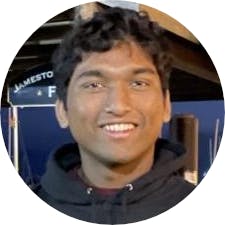On Nov. 6, I, like many of my classmates, woke up disappointed by the results of the U.S. election. As a lifelong liberal, I thought the choice was clear — a prosecutor over a felon. But I was not surprised that so many of my fellow Americans turned to Trump.
I grew up, in part, in rural and red America. In Midland County, Michigan and Benton County, Arkansas, where I grew up, Trump won by 15 and 27 points, respectively. These are places where people know their neighbors, communities are stable, and there is a real distrust of outsiders. Like many of these communities, their priorities lie not in the civil rights struggles of the left, but in keeping the American dream alive.
These struggles are well documented by my peers at Brown. Yet for many classmates, 91% of whom said they plan to vote for Vice President Harris, the reasons someone could find themselves voting for Trump seem further removed than ever. At the 24Cast election watch party, whenever Trump’s face would appear on screen, the crowd responded with a loud boo (and I must admit, I participated). In hindsight, this was unproductive. The day after the election, I saw other classmates posting to their Instagram stories that Trump supporters who follow them should remove themselves. This, too, was unproductive.
As an Ivy League institution, Brown plays a special role in educating the next generation of American leaders. However, I worry that a lack of ideological and geographic representation stands in the way of preparing graduates to lead our diverse nation. According to The Herald’s most recent first-year poll, 42% of Brown first-years hail from just four liberal strongholds: California, New York, Massachusetts and New Jersey. Only 10% of students come from rural areas, and only 6% identify as conservative. Furthermore, at Brown, more students come from the top 1% of the income distribution than the bottom 60%.
Much of these disparities can be attributed to the fact that highly educated families, who tend to be more liberal, wealthy and urban, have the resources to provide the quality primary and secondary education necessary to get into Brown. But it furthers the perception of Brown as a bastion of elitism — yes, liberal elitism — that tarnishes the credibility and ability of a Brunonian to engage with our nation’s polity.
Regardless of whether I think Trump’s ideas are particularly good ones, they represent the beliefs of 76 million Americans and deserve serious engagement. At Brown, given the overwhelmingly liberal atmosphere, I’ve encountered little debate on some of the fundamental issues that dominated this year’s election, such as immigration and the economy. This is deeply disappointing to me as someone whose formative political experiences came from debating my conservative peers in high school.
Some, such as Princeton political scholar Lauren Wright, argue that the liberalism of elite colleges fosters intellectual vitality among conservative students who often find themselves needing to justify their own beliefs. I am not convinced this is the case. Rather than engaging in classes, conservatives at Brown, by virtue of their small numbers, have instead become silent.
The road to Washington often begins at Ivy League institutions. Yet I fear the polarization that comes from separation will deepen gridlock as we fail to learn how to engage with one another. This is an existential threat not only to conservatism, which in recent years has become detached from its intellectual roots, but also to liberalism, whose thought leaders face little pushback for the increasingly far-reaching proposals they put forward.
As an institution, it is imperative that Brown do more to attract and preserve ideological diversity. This includes outreach to students in rural and red states, inviting controversial speakers, recruiting conservative faculty and, most importantly, creating a campus where students feel safe to discuss unorthodox ideas without fear and with dignity.
We all benefit from dialogue and challenge, whether it be from faculty, peers or speakers. Without it, we risk becoming echo chambers for our own biases — unaware of, or worse, dismissive of, the concerns that shape the lives of millions of Americans outside our campus bubble. Trump will be our next President. As students, liberal or conservative, our job must not only be to complain but to understand the politics that drove us to our present moment. This begins with ideological and geographic diversity.
'Tas Rahman ’26 can be reached at tasawwar_rahman@brown.edu. Please send responses to this opinion to letters@browndailyherald.com and other op-eds to opinions@browndailyherald.com.

Tas Rahman is a staff columnist at the Brown Daily Herald writing about issues in higher education. When he's not coding or studying biochemistry, you can find him hiking and enjoying the great outdoors.




